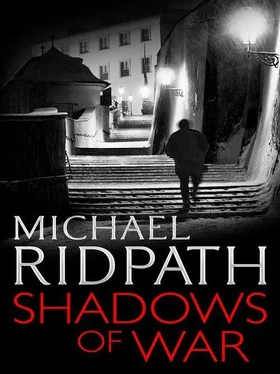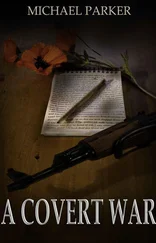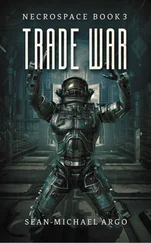‘Thank you,’ said Conrad, smiling. ‘Here — take some money. You might need it if you are hanging around there trying to make friends.’ He pulled a couple of notes out of his wallet.
Anneliese hesitated but she took the money. She didn’t have any, Conrad was right that she would need some, and there was no point in pretending otherwise.
‘And thank you for whatever you said to my mother,’ Conrad said. ‘She was in a bad way. You have cheered her up.’
‘I like her,’ said Anneliese. ‘And I do feel so sorry for her.’ She got to her feet. ‘Now, I must be going back to Hampstead.’ She said it firmly, as if she didn’t want to be contradicted.
Conrad was tempted to contradict her. He would much rather take Anneliese to the cinema and have supper with her somewhere than face his own family. She seemed different this evening, different than she had seemed for months, really since she had arrived in England. But perhaps his father was right. Conrad didn’t want to risk breaking her new-found confidence. He should back off, and wait for her to come to him when she was ready.
So he let her go.
The Tiergarten, Berlin, 24 November
Admiral Canaris rode in the Tiergarten almost every morning, sometimes alone, sometimes with his fellow Abwehr officers, and sometimes, like that morning, with SS Sturmbannführer Walter Schellenberg.
The two men knew each other well. Like Heydrich, they lived in the wooded Schlachtensee suburb of Berlin, and they had met socially through the Gestapo chief. As effective head of the new foreign-intelligence branch of the Gestapo, Schellenberg was a rival. Although at that point much smaller than the Abwehr, Canaris knew Schellenberg’s nascent organization was bound to grow rapidly given the ambitions of his bosses Heydrich and Himmler. But rather than make an enemy of his rival, Canaris treated the younger, junior officer as a friend, something Schellenberg appreciated.
The Tiergarten had originally been preserved as a hunting forest, and in parts of its wooded heart, in the cold foggy murk of a November dawn, it still felt like one. Except one stumbled across occasional statues of dead composers rather than the odd hind or stag. Here one could think, away from the hubbub of Berlin traffic or War Ministry gossip. Here one could talk.
‘Walter, one of my top agents had an unpleasant experience in Holland yesterday morning.’
‘Really?’
‘Yes. He’s an Englishman. Actually he is half-German. Conrad de Lancey. Do you know of him?’
‘I’ve seen his file,’ said Schellenberg. ‘There wasn’t much in it.’
Canaris laughed. ‘No, I suspect there wasn’t. There was some unpleasant business with de Lancey last year involving documents relating to your chief’s ancestry. I didn’t believe any of it, of course, and I am not going to discuss specifics.’
‘Please don’t.’ The last thing Schellenberg wanted to be told was that Reinhard Heydrich was part Jewish.
‘We had some difficulties with de Lancey last year, of which Reinhard is well aware, and we dropped him. But when war broke out one of our officers reactivated him. If we manage him correctly, he could become a valuable source of information for us.’
‘I see.’
‘And now we come to the unpleasant experience. Our officer, Lieutenant Hertenberg, met de Lancey in Leiden yesterday. Afterwards, de Lancey was attacked by a man with a gun. De Lancey is a resourceful fellow and managed to overcome his attacker and kill him. Chased him off the roof of a university building, I believe. Our embassy in The Hague has been informed by the Dutch police that the man’s identification suggests he was a Dr Heinrich Fuhrmann from the University of Hamburg. They are saying it was suicide: he jumped. Needless to say there is no such man on the university faculty.’
‘I see,’ said Schellenberg quietly. ‘Could this Dr Fuhrmann be a British agent?’
‘Possibly,’ said Canaris. ‘Although it had occurred to us that he might have been working for you. No need to answer that, Walter. It would be perfectly understandable if given de Lancey’s activities last year you had assumed he was an enemy agent.’
‘And you are telling me de Lancey is one of yours?’
‘Yes. He is a bit of a loose cannon, but he is our loose cannon. And please reassure Reinhard that he hasn’t divulged any of the information he uncovered, or claims to have uncovered, about Reinhard’s family history last year. Which is a good thing, because I am sure he made it all up anyway.’
‘I understand,’ said Schellenberg. ‘I’ll pass that on.’ And he would, faithfully. He suspected that the sly admiral had outfoxed Heydrich on this one. Leave de Lancey alone and no nasty rumours about Jewish ancestors would emerge. That should work. And, frankly, that was fine with Schellenberg. He still had his hands full with Payne Best, Stevens, and the man who had planted the Munich beer hall bomb, Georg Elser, who was giving every indication of being the demented loner he claimed.
They emerged from the dark woods into an open green space, shrouded in grey curtains of fog.
‘Come on, Walter!’ called Canaris as he urged his horse into a canter. Schellenberg followed him into the bank of mist.
Mayfair, London
‘Why are we here, Freddie?’
Here was Erskine’s, a club on a side street in Mayfair. Freddie Copthorne was a member, but Alston had hardly ever been there. It was a bit young, a bit chaotic for him. And now Freddie had asked to meet him there for a drink.
Alston’s doubts about Freddie were increasing. He liked the man, everybody liked Freddie, and as a result his contacts among those British nobility who were suspicious of war were excellent, especially the younger ones such as Lord Brocket and Lord Tavistock. But Alston’s reputation was quietly rising in both Houses of Parliament. He didn’t really need Freddie anymore.
They were in the club’s tiny library — it wasn’t the sort of club where one went to read — and they were alone with a pink gin and a glass of beer.
‘I want to talk to you, Henry, and I wanted neutral territory on which to do it.’
‘This is hardly neutral territory. I’d say you were playing at home.’
Freddie ignored him. ‘Ever since we met that man Bedaux, I’ve been thinking.’
‘Yes?’ Alston refrained from warning Freddie against doing anything so dangerous.
‘I have concerns about what he was suggesting. About what we are doing.’
‘Concerns about stopping a world war?’
‘No. But concerns about how we do it.’
‘We’ve been through this before, Freddie. It’s perfectly clear. If the present government won’t make peace then we need a new government. The logic is inescapable.’
‘Yes. But do we need a new king?’
‘We need a government that Hitler will talk to. That may mean a new king.’
‘But should we really be talking to Hitler’s people now? Should we be talking to someone as shady as Charles Bedaux?’
‘Yes, Freddie, we should.’ Alston fought to control his impatience. ‘Because that’s the only way we will get peace.’
‘I’ve thought about it long and hard, Henry, and I think it’s treason.’
‘Don’t be ridiculous.’
‘My loyalty is to my king, who is George VI, and to my country, which is at war with Germany.’
‘But you have to look more deeply than that, Freddie,’ Henry said. ‘Nothing is straightforward—’
Copthorne held up his hand. ‘Yes, it is. That’s my point. It is straightforward. I’ve been bamboozled by your ingenious arguments, Henry, and I’ve lost track of what is really important, which is beating the Hun. And serving my king.’
Читать дальше












